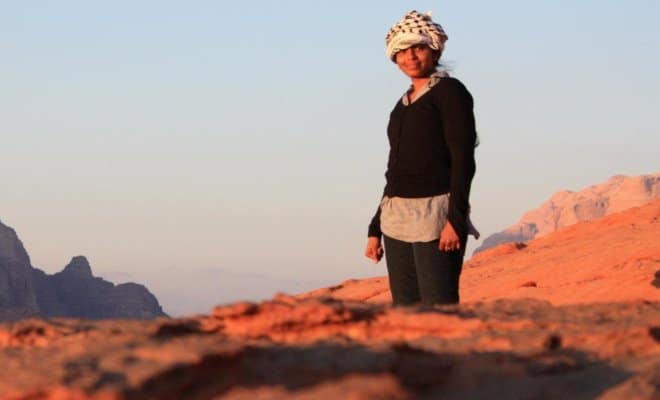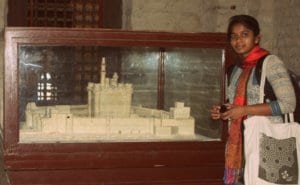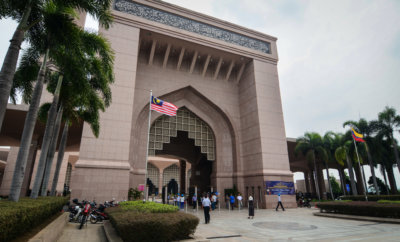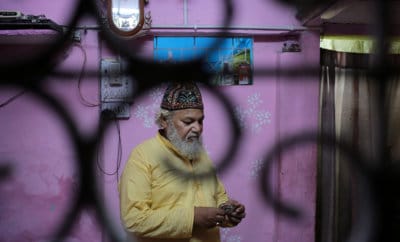NRI Voices
NRI Voice: Living Between Two Worlds

Lakshmi in Wadi Rum, Jordan.
Lakshmi Selvakumaran talks about her contrasting life inside her Saudi Arabia university campus and outside.
Born and bred in Coimbatore, Lakshmi Selvakumaran moved to Saudi Arabia for a higher college degree in 2010. She experienced a culture shock for the first time when stepping outside the boundaries of her university. The 28-year-old mechanical engineering graduate speaks to Little India about the world inside the university and the one outside:
The move
The move wasn’t a difficult one, as the world inside the King Abdullah University of Science and Technology campus, where I am pursuing my PhD after completing masters, is very different from the outside. The university is like a different country in itself — it is an extremely cosmopolitan township and there are people from 83 countries residing on campus. The Saudis are not a majority and they are also very different within the complex. I don’t feel like I am in a country that is known for its restrictions. I am surrounded by women wearing sleeveless or even bikinis inside the premises.
However, outside the university, it is a different world. I have to wear an abaya. When I moved here, women could drive inside the campus, but not outside. My university is in Thuwal, about 80 km from Jeddah — which is comparatively more free when it comes to letting women go outside without a male companion.
Instances of racism
If you are an Indian, roaming around in an ill-fitted abaya, they would assume you are a maid. When I was asked if I was one and if I knew any others, I knew it was time to get my abaya changed.
My male friend has been asked numerous times if he is a shopkeeper — much to his irritation.
Travel in Middle East
During weekends, I usually tutor, handle the various clubs I am part of, or just visit the mall. On longer holidays, I travel around the region. So far, I have been to Egypt, Syria (before the war happened), Jordan, Lebanon and Turkey. Truthfully, anywhere in Middle East is like being home. The markets of Alexandria in Egypt remind you of Commercial Street in Bengaluru — bustling area, people bargaining, friendly and curious people, ready to fleece someone who looks like a tourist.

Lakshmi Selvakumaran in Alexandria.
Seeing Syria now breaks my heart because I have walked on the very streets that have been shelled and bombed — Damascus, Aleppo, Palymra. I have experienced the history of places that have been destroyed. When I was there, the roof of the Grand Mosque carried bullet holes from previous war. Syria was a place with a lot of tourists. It was structured to be friendly with tourists, with a lot of homestays.
Lebanon is a very multicultural country with the most liberal Muslims. It is where both Muslims and Christians live together, and where one finds Islamic architecture and Christian works side by side. Their culture is very French influenced. In fact, their second language is French. Jordan is a very beautiful country and has great places to rock climb.
Why I missed India
As a staunch vegetarian, I initially struggled to find food, and I am quite a picky eater. So my go-to food was falafel, hummus, salad, dates (you can’t escape them in the Middle East) and tabouleh. I mix hummus and tabouleh — it is extremely tasty. Also, their style of pizza is the best I have had. It is thin crusted, with Za’atar, and labneh (Greek yogurt).
About People
Living with and being friends with Muslims for years has taught me that correlating the way you look to how you are is a reflection of your own prejudice. It is bad to racially profile people and stereotype. If you get to know them, they aren’t any different.
I have friends who choose to wear the abaya or hijab and I have friends who rebel against it and don’t. I have seen Saudi women playing very good football — more than I have in India. I have had healthy debates with them about their religion and my own understanding of it. While we do hear stories of oppression, things are changing. Fundamentalist elements exist in other religions as well. Every religion goes through a process of evolution and none has stayed where it was. As these countries are opening up to the world, with more information coming in, people are choosing how they want to go about things.




You must be logged in to post a comment Login